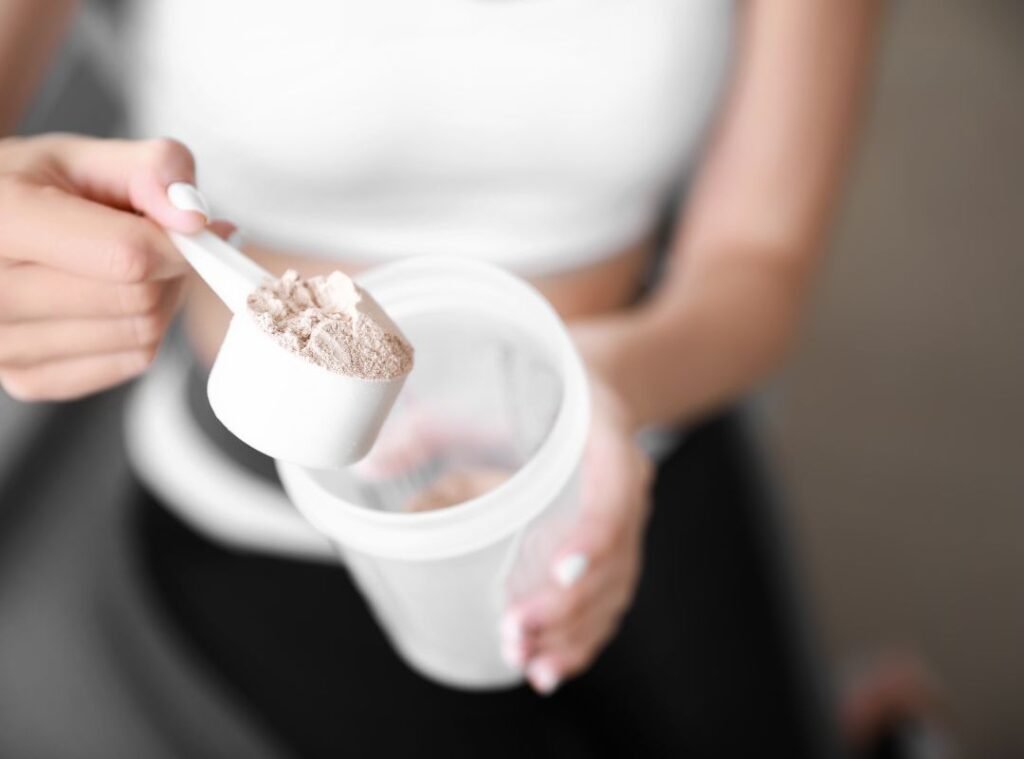Pea Protein vs. Whey: Which Is Better for Your Gut?
Table of Contents
TL;DR:
Pea protein and whey protein both offer excellent muscle-building benefits, but when it comes to gut health, they affect digestion differently. Pea protein is easier on the stomach, supports gut-friendly bacteria, and avoids common allergens. Whey protein, while rich in amino acids, can cause bloating and digestive discomfort for those sensitive to dairy. If gut health is your priority, pea protein is the better choice. Read on to discover why.
Introduction: Your Protein Choice Can Make or Break Your Gut Health
Protein supplements are a staple for fitness enthusiasts, athletes, and anyone looking to maintain a healthy diet. But what if your protein choice is silently wreaking havoc on your gut?
The gut is the foundation of overall health, impacting digestion, immunity, and even mental well-being. If you’ve ever felt bloated, gassy, or sluggish after consuming protein shakes, it’s time to examine whether pea or whey protein is the right fit for your digestive system.
In this article, we’ll break down how each protein type interacts with gut health, the benefits and drawbacks, and which one you should choose to keep your digestive system happy.
Key Takeaways:
✅ Pea protein is hypoallergenic, easier to digest, and supports gut-friendly bacteria.
✅ Whey protein contains lactose and can trigger bloating or digestive distress in sensitive individuals.
✅ If gut health is your priority, pea protein is the superior choice.

Pea Protein vs. Whey: What’s the Difference?
Before diving into gut health, let’s understand what makes these two proteins unique.
Pea Protein
Derived from yellow split peas
Naturally dairy-free, gluten-free, and hypoallergenic
Contains all nine essential amino acids (though slightly lower in methionine)
Rich in iron and beneficial for plant-based diets
Whey Protein
Derived from milk as a byproduct of cheese production
A complete protein with all essential amino acids
Rapidly absorbed, making it a favorite for muscle recovery
Contains lactose, which may cause digestive issues
How Do These Proteins Affect Gut Health?
Pea Protein: A Gut-Friendly Option
✅ Easier Digestion: Since it’s free from dairy, pea protein doesn’t cause bloating or discomfort commonly linked to whey.
✅ Prebiotic Benefits: Some studies suggest that pea protein may support beneficial gut bacteria, which enhances digestion.
✅ No Common Allergens: Free from lactose, gluten, and soy, making it ideal for those with food sensitivities.
✅ Gentle on IBS & Sensitive Stomachs: Many people with irritable bowel syndrome (IBS) or leaky gut syndrome find plant-based proteins like pea protein easier to tolerate.
Whey Protein: A Potential Gut Irritant
⚠️ Lactose Can Be Problematic: Many adults have some degree of lactose intolerance, leading to bloating, gas, and diarrhea after consuming whey.
⚠️ May Contribute to Inflammation: Some individuals experience increased gut inflammation due to dairy proteins, particularly if they are sensitive.
⚠️ Can Disrupt Gut Bacteria: Excess whey protein consumption may alter gut microbiota, potentially leading to digestive discomfort.
Which One Is Better for Gut Health?
If you struggle with digestion, bloating, or food sensitivities, pea protein is the better choice. It’s gentle, free from common irritants, and even supports beneficial gut bacteria. While whey protein is still a great option for those who tolerate dairy well, it’s not ideal for individuals prone to digestive issues.
Who Should Choose Pea Protein?
✔️ Those with lactose intolerance
✔️ People with IBS or digestive sensitivity
✔️ Individuals looking for a plant-based protein
✔️ Anyone seeking a gut-friendly protein source
Who Can Benefit from Whey Protein?
✔️ Those without dairy sensitivities
✔️ Athletes needing quick muscle recovery
✔️ Individuals prioritizing high leucine content for muscle building

Final Verdict: Pea Protein Wins for Gut Health
While whey protein remains a staple in fitness nutrition, it’s not always the best for digestion. If you prioritize gut health and want to avoid bloating, discomfort, and potential inflammation, pea protein is the smarter choice.
Next Steps: Try It for Yourself!
👉 Experiment with switching to pea protein and monitor how your gut responds.
👉 Read ingredient labels carefully—opt for clean, high-quality protein sources.
👉 Consider mixing proteins or rotating them based on your digestive needs.
Have you experienced gut issues with protein supplements?

Join our Email List
Past Blog Posts

Poop & Weight Loss/Gain: How Your Bowel Health Impacts Your Scale
Your scale isn’t measuring fat — it’s measuring what your gut hasn’t let go of. Hidden stool retention, slow motility, and gut bacteria can quietly drive weight gain and bloating, even when your diet is “perfect.” This post exposes the dirty secret behind stubborn weight… and how to fix it.

What Your Stool Color & Shape Reveal About Your Gut Health
Your poop is a real-time report card on your gut health—and most people are ignoring it. From color changes to weird shapes to the clues hidden in texture, every bowel movement tells a story. This guide breaks down exactly what your stool says about digestion, inflammation, and the hidden issues you can’t see.

Is Wheat Wrecking Your Gut? What Celiac Disease Reveals
Wheat isn’t the villain—it’s the kind of wheat that’s wrecking your gut. From ancient grains to modern hybrids, discover how today’s wheat triggers inflammation, worsens celiac symptoms, and sabotages digestion—and what smarter, safer alternatives can finally bring your gut back to balance.
